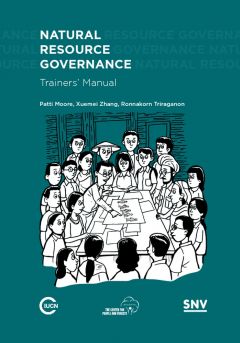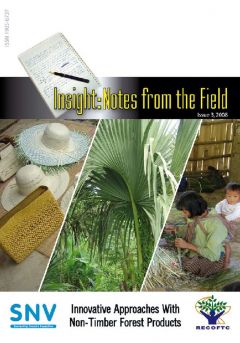Location
SNV is a non-profit, international development organisation, established in the Netherlands in 1965. We have been present on the ground in developing countries for over 40 years, and now operate in 35 countries in Africa, Asia, Latin America and the Balkans.
What do we do?
Our aim is to alleviate poverty by enabling those on the lowest incomes to be part of social and economic networks and so increase their income and employment opportunities. More than half of our work focuses on economic and private sector development, wherein secured access to natural resources is a key attention point. Alongside this, we contribute to improving people’s access to basic services like water and sanitation, energy and education. We achieve both by strengthening local organisations.
Promoting gender equity and transparent public sector leadership is at the heart of all our work. We believe these principles are essential to building stronger societies.
We work in the areas where our support is most needed. The majority of our advisors are based far from capital cities, in provincial towns and in rural areas, where the challenges of poverty are often greatest. From this sub-national level, we can facilitate links between local and national organisations.
Members:
Resources
Displaying 1 - 5 of 15Participatory subnational planning for REDD+ and other land use programmes: Methodology and step-by-step guidance
This document presents a proposed methodology, and step-by-step guidance, for Participatory Subnational Planning (PSP), tailored to operationalise subnational REDD+ programmes. PSP is a participatory planning method presented as a comprehensive, yet cost-effective approach to identifying: drivers of deforestation and forest degradation; interventions to address these drivers; environmental and social benefits/risks of these interventions; and indicators and monitoring plans.
Designing Sustainable Development Strategies for Agricultural Commodities across the Landscape: Applying the Siting Tool for guiding rubber, cocoa, coffee and oil palm development in North Sumatra, Indonesia
This report provides key data and recommendations on the sustainable development of four commodities driving land use change in North Sumatra, Indonesia - coffee, cocoa, palm oil and rubber. The report seeks to assess the current and future situation in the districts of Mandailing Natal, Tapanuli Selatan and Tapanuli Utara, taking into account both economic and conservation perspectives.
Natural Resource Governance Trainer's Manual
Governance is the keystone of sound natural resource management. Its core principles - accountability, transparency, participation, and the rule of law - are at the heart of the efforts being made at local, national, bilateral and multilateral levels to ensure that decisions that affect natural resources and resource users are well-informed and implemented equitably. There is a real need for all those who are involved in making and implementing decisions to understand the basic concepts and principles of governance and be able to apply them in their daily work.
Toward Communal Land Titles in Sangthong District
According to the Prime Minister’s Decree on Land Titling, No. 88 from 03/06/2006, Communal Land Titles can be issued for all types of land that occur in the Lao PDR which are allocated by the Government to village communities. The development of community land titles is also part of objectives of the 5-year National Socio-Economic Development Plan, which aims to issue 1.5 million title deeds over the period 2011-2015. Up to now, communal land titles have not been issued in Lao PDR, mainly because the format and detailed technical concept were not yet developed.
Insight: Notes from the Field, Issue III - Innovative Approaches with Non-Timber Forest Products
Debate over the potential of NTFPs for achieving ecosystem conservation and poverty alleviation has grown in the past decade. Concern has been raised that NTFP activities may not always provide the poor with the expected benefits, and could in some cases even act as a poverty trap (see discussion in Overview paper). Considering these concerns, the objective of this publication is to share experiences on how innovative approaches have led to successful outcomes such as increased access of poor forest dwellers to resources and markets, increased participation, and benefit sharing.





